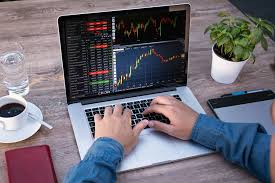Forex trading is one of the most popular financial activities nowadays. The foreign exchange market offers countless opportunities for traders to speculate and profit from currency fluctuations. But in order to access the forex market, you need to have a forex broker. In this article, we’ll guide you through everything you need to know about forex brokers. From what they are to how to choose the best one for you, this ultimate guide to forex brokerwill help you get started with forex trading.
What is a Forex Broker?
A forex broker is a financial institution that offers traders access to the foreign exchange market. Forex brokers are intermediaries between the traders and the market, providing clients with trading platforms, educational resources, research tools, and customer support. A forex broker earns its income through spreads, which is the difference between the bid and the ask price of a currency pair. The spread is the cost of trading with the broker.
How to Choose a Forex Broker?
Choosing the right forex broker is crucial for your success as a trader. Here are some tips to help you choose the best forex broker for you:
Regulation – The first thing to check when choosing a forex broker is whether it is properly regulated. In the US, the National Futures Association (NFA) and the Commodity Futures Trading Commission (CFTC) regulate forex brokers. In Europe, forex brokers are regulated by the European Securities and Markets Authority (ESMA) and other authorities.
Trading Platform – The trading platform provided by the forex broker should be user-friendly, reliable, and have all the necessary features for trading. Some of the most popular trading platforms in the market are MetaTrader 4 (MT4) and MetaTrader 5 (MT5).
Trading Instruments – A good forex broker should provide its clients with a wide range of trading instruments, including currency pairs, commodities, indices, and cryptocurrencies.
Account Types – Forex brokers offer different types of accounts, such as standard accounts, mini accounts, and demo accounts. You should choose a forex broker that offers account types that suit your trading needs and budget.
Customer Support – A good forex broker should offer reliable and responsive customer support. You should check whether the broker offers support through phone, email, or live chat.
Fees – The spreads and commissions charged by the forex broker should be reasonable and transparent. You should also check whether the broker charges any withdrawal or deposit fees.
What are the Types of Forex Brokers?
There are three main types of forex brokers:
Market Makers – Market makers, also known as dealing desk brokers, are forex brokers that provide their clients with quotes and execute their trades internally. Market makers make money by adding spreads to the quotes they offer to their clients.
STP Brokers – STP brokers, also known as straight-through processing brokers, execute their clients’ trades directly in the market. STP brokers make money by adding a commission to the spread they offer to their clients.
ECN Brokers – ECN brokers, also known as electronic communication network brokers, provide their clients with direct access to the market. ECN brokers make money by charging a commission on the trades executed by their clients.
Conclusion:
In conclusion, choosing the right forex broker is crucial for your success as a trader. You should check whether the forex broker is regulated, offers a reliable trading platform and a wide range of trading instruments, provides responsive customer support, and charges reasonable fees. Additionally, you should know the different types of forex brokers and their pros and cons. By following these guidelines, you’ll be able to choose a forex broker that suits your trading needs and budget, and start your forex trading journey with confidence.


